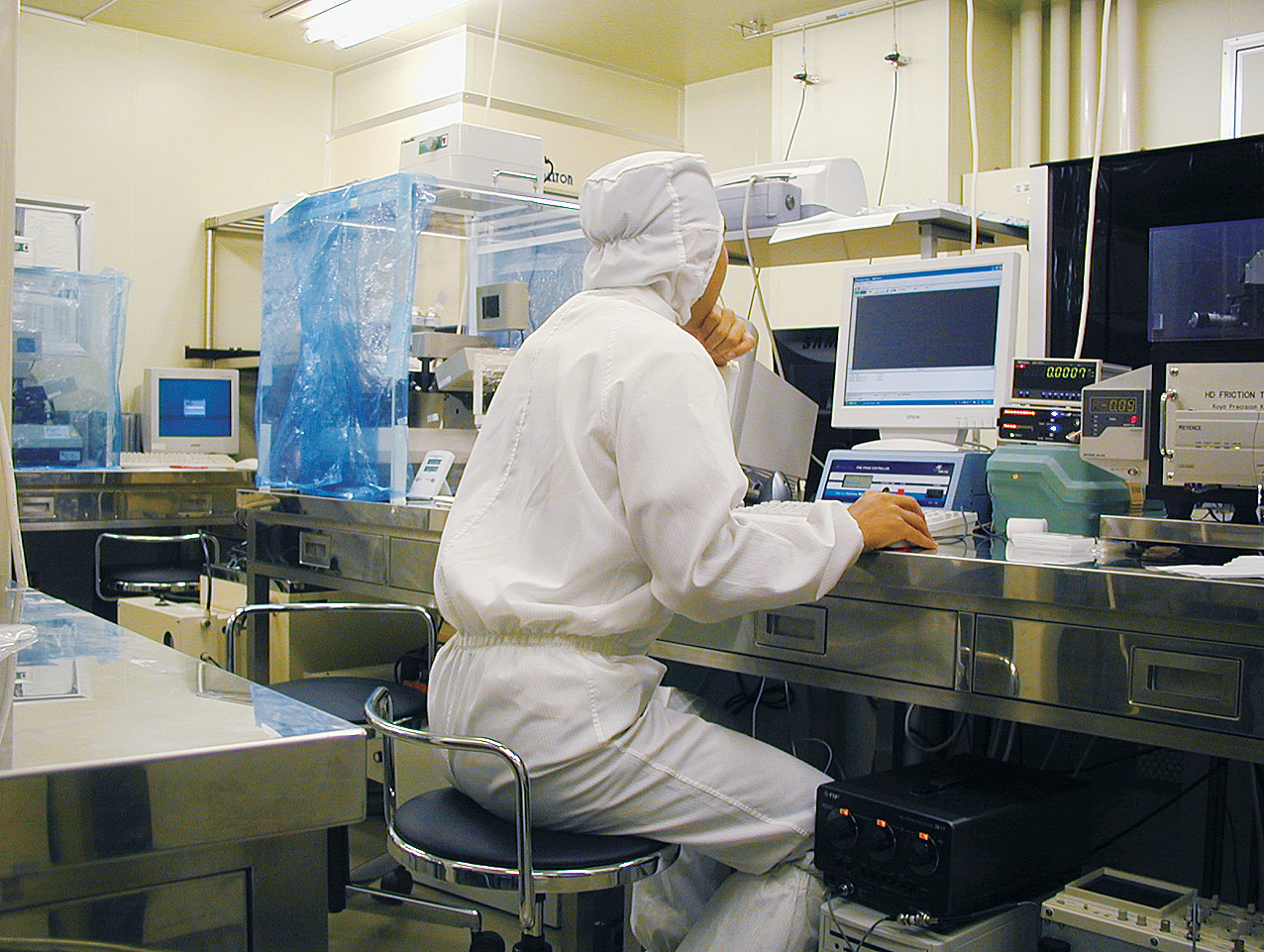Comprehensive List of Researchers "Information Knowledge"
Department of Complex Systems Science
- Name
- ZHANG, Hedong
- Group
- Material Informatics Group
- Title
- Associate Professor
- Degree
- Dr. of Engineering
- Research Field
- Simulation of nano physical phenomena / Nano-metrology / Nano-tribology

Current Research
Exploring the Nano World
OUTLINENanotechnology, which creates novel properties, functions, and performance for devices and systems by manipulating the component atoms and molecules at the nano-scale, is dramati-cally impacting a wide range of applications including mic-ro/nano machines, the head-disk interface of magnetic disk drives, and biomolecule manipulation. Focusing on such ap-plications, we are engaged in research on (1) interdisciplinary study to elucidate the mechanical, physical and chemical phe-nomena occurring between two nano-separated relatively mov-ing surfaces, (2) nano-metrology for evaluating the characteris-tics and functions of relatively moving surfaces, and (3) nano-tribology for realizing nanoscale relative motion precisely and durably.
TOPICS
(1) Development of Functionalized Tribological Surfaces
In micro/nano mechanical systems, lubrication provided by molecularly thin polymer films is of critical technological import-ance for realizing nanoscale relative motion precisely and dur-ably. The characteristics of such polymer films are basically determined by their interactions with solid surfaces. If the strength and distribution of the interactions could be controlled according to a pattern on the surface, it would be possible to attain desired functions and performance by a rational pattern design. We have developed two novel methods to pattern the film/solid interactions : using microscopic textures fabricated on the solid surfaces, and using ultraviolet irradiation through a mask. We are investigating the conformation, mechanical characteristics, and tribological performance of the lubricated surfaces patterned under various conditions. Based on the results, we are establishing guidelines for designing functional-ized tribological surfaces.
(2) Measurement of Mechanical Properties of Molecularly Thin Polymer Films on Solid Surfaces
In micro/nano mechanical systems, adhesion and friction of molecularly thin polymer films play an ever more vital role in the increasing miniaturization of components. Here, we have de-veloped a measuring apparatus to study the fundamental mechanical properties of nanometer-thick polymer films. The apparatus features extremely lightly loaded sliding during which polymer conformations is not disturbed. Using this apparatus, we are elucidating lubrication mechanisms of polymer films from the molecular viewpoint.
(3) Development of Biomolecule Separation Methods Based on Size-Exclusion Chromatography
In the field of biotechnology, as the basis of micro total analysis systems, separation of biomolecules has attracted much attention. So far, methods using nanostructured chan-nels based on size-exclusion chromatography have been prop-osed and their validity demonstrated. However, optimizing the nanostructured channels remains a crucial challenge for impro-ving the separation performance. In this research, we have developed a method to simulate the spreading characteristics of biomolecules in nanostructured channels. Using both simulations and experiments, we are clarifying the effects of channel structures and of the electrophoresis voltage applied on the channels on the separation performance. We aim to develop optimized methods for biomolecule separation based on the simulated and experimental results.
FUTURE WORK
The field of nanotechnology, which deals with fabrication, movement, and manipulation at the nano-scale, shares much in common in simulation, measurement, and tribology. We thus expect that our research will contribute not only to magnetic disk drives and biomolecule separation, but also broadly to many other applications of nanotechnology.

Figure : Landscape of the laboratory (clean room)
Career
- 2002: Dr. of Engineering degree, Nagoya University.
- 2002-2003: Research Associate, Graduate School of Engineering, Nagoya University.
- 2003-2010: Research Associate, Graduate School of Information Science, Nagoya University.
- 2010-present: Associate Professor, Graduate School of Information Science, Nagoya University.
Academic Societies
- Japan Society of Mechanical Engineers
- Japanese Society of Tribologists
Publications
- Solvent Effects on Friction Properties of Monolayer Perfluoropolyether Films Coated on Magnetic Disk Surfaces, IEEE Transactions on Magnetics, 45, 3632-3635 (2009).
- Quantification of the Surface Morphology of Lubricant Films With Polar End Groups Using Molecular Dynamics Simulation: Periodic Changes in Morphology Depending on Film Thickness, ASME Journal of Tribology, 130, 022301-1-9 (2008).
- Self-Organized Patterning of Molecularly Thin Liquid Polymer Films Utilizing Molecular Flow Induced by Ultraviolet Irradiation, Applied Physics Letters, 90, 123119-1-3 (2007).








